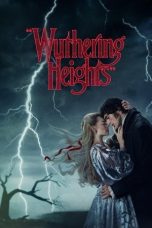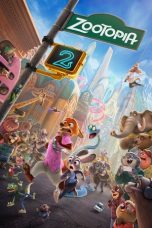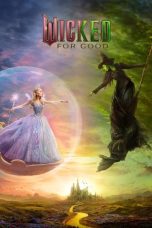The Dreamy World of Wong Kar-Wai: An In-Depth Review of “Chungking Express” (1994)
Introduction
“Chungking Express” (1994), directed by acclaimed Hong Kong filmmaker Wong Kar-Wai, is a vibrant and visually stunning film that explores themes of love, loneliness, and chance encounters. With its innovative storytelling, dynamic cinematography, and memorable performances, the film has garnered a cult following and cemented Wong Kar-Wai’s reputation as a master of contemporary cinema. This review delves into the film’s narrative, technical brilliance, performances, and lasting legacy, while also providing information on where to stream it in the United States.
Plot Summary
“Chungking Express” is divided into two distinct yet thematically linked stories, both set in the bustling city of Hong Kong. The first story follows Cop 223 (Takeshi Kaneshiro), a heartbroken police officer who obsesses over his recent breakup. He fixates on the expiration dates of canned pineapples as a way to cope with his emotional turmoil. One night, he encounters a mysterious woman in a blonde wig (Brigitte Lin), who is involved in the city’s underworld. Their brief and enigmatic interaction serves as a turning point for Cop 223.
The second story centers on Cop 663 (Tony Leung Chiu-Wai), another police officer dealing with his own heartbreak after being left by his flight attendant girlfriend. His path crosses with Faye (Faye Wong), a quirky and free-spirited worker at a local snack bar. Faye becomes infatuated with Cop 663 and begins to secretly transform his apartment while he is away, hoping to bring some joy back into his life.
Cinematography and Visual Style
Wong Kar-Wai’s collaboration with cinematographer Christopher Doyle results in a visual feast that captures the frenetic energy and vibrant colors of Hong Kong. The film employs a mix of fast-paced, handheld camera work and slow-motion sequences, creating a dreamy and immersive atmosphere. The use of neon lights, reflections, and saturated colors adds to the film’s unique aesthetic, making the city itself a character in the story.
The director’s penchant for unconventional framing and composition further enhances the film’s distinctive style. Close-ups, tilted angles, and fragmented shots convey the characters’ emotional states and the transient nature of their encounters. The visual style of “Chungking Express” has influenced numerous filmmakers and remains a hallmark of Wong Kar-Wai’s cinematic approach.
Themes and Symbolism
“Chungking Express” explores themes of love, loneliness, and the passage of time. The characters’ longing for connection and their attempts to find solace in a bustling metropolis reflect the universal human experience of seeking meaningful relationships. The film’s two stories, while distinct, are united by their exploration of chance encounters and the impact of fleeting moments on our lives.
The recurring motif of expiration dates, particularly in the first story, symbolizes the impermanence of relationships and the inevitability of change. The contrast between the vibrant, chaotic city and the characters’ introspective journeys highlights the tension between external appearances and internal emotions.
Performance and Characterization
The performances in “Chungking Express” are captivating and nuanced. Takeshi Kaneshiro brings a boyish charm and vulnerability to Cop 223, making his emotional journey relatable and poignant. Brigitte Lin’s portrayal of the enigmatic woman in the blonde wig is both mysterious and captivating, adding an element of intrigue to the first story.
Tony Leung Chiu-Wai delivers a standout performance as Cop 663, capturing the character’s melancholic yet hopeful nature. His chemistry with Faye Wong, who shines as the eccentric and endearing Faye, adds depth and warmth to the second story. Faye Wong’s playful and spirited portrayal brings a sense of whimsy and lightness to the film, balancing the more somber themes.
Critical Reception and Legacy
Upon its release, “Chungking Express” received critical acclaim for its innovative storytelling, visual style, and emotional depth. It has since become a cult classic and a defining work in Wong Kar-Wai’s filmography. The film’s influence can be seen in contemporary cinema, with many directors citing it as an inspiration for its unconventional narrative structure and distinctive aesthetic.
“Chungking Express” continues to resonate with audiences, offering a timeless exploration of love and loneliness in an ever-changing world. Its impact on the global film landscape and its enduring popularity attest to its status as a modern masterpiece.
Where to Watch “Chungking Express”
For those eager to experience “Chungking Express,” the film is available on several streaming platforms and rental services in the United States.
- Streaming Services: The film is currently available for streaming on Criterion Channel, which offers high-definition versions along with supplemental features such as documentaries and interviews about the making of the film and Wong Kar-Wai’s influence on cinema.
- Rental/Purchase Services: “Chungking Express” can also be rented or purchased on Amazon Prime Video, Google Play Movies, and Apple iTunes. These platforms provide options for both standard and high-definition viewing, ensuring a high-quality cinematic experience.
Conclusion
“Chungking Express” (1994) is a visually stunning and emotionally resonant film that captures the essence of urban life and the complexities of human relationships. Wong Kar-Wai’s masterful direction, combined with Christopher Doyle’s mesmerizing cinematography and the captivating performances of the cast, creates an unforgettable cinematic experience. Whether you are a seasoned film enthusiast or discovering Wong Kar-Wai’s work for the first time, “Chungking Express” offers a rich and immersive journey into the heart of Hong Kong. For an exploration of love, loneliness, and the beauty of fleeting moments, be sure to stream or rent this iconic masterpiece on your preferred platform.
















